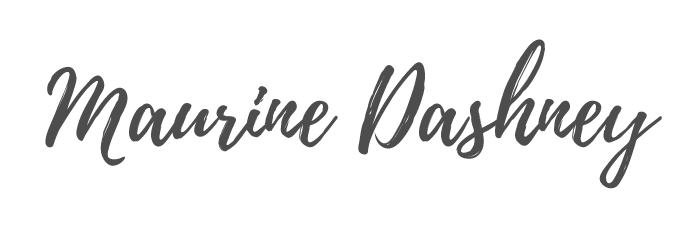My first post titled “The 25 Most Useful French Phrases I Learned While Studying in France” got a ton a great feedback, so I thought I’d make a part deux. And here it is . These are 25 more French phrases I encountered rather often during my study abroad in Lyon, France.
Enjoy!
Use this just the way you would “anyway” in English. De toute façon…je disais… (Anyway…I was saying…)
2. Je me demandais… [ʒə mə də.mɑ̃.de] I was wondering...
You definitely could have figured out this phrase by doing the conjugation yourself, but I’ve saved you the trouble. You’ll use this all the time. Je me demandais si… I remember using this for the first time at a restaurant while asking a couple of detailed questions about the menu, and then saying, “Oh, I was just wondering…”
3. Je pense que oui. [ʒə pɑ̃s kə wi] I think so.
Other ways to say this would be je pense and je crois. The contrary—”I don’t think so”—would be the negatives of those phrases, so je ne pense pas and je ne crois pas. I never really heard je pense que non for “I don’t think so,” though.
4. C’est parti! [se paʁ.ti] Here we go! / Let’s go (finally)!
This is one of those phrases that has a myriad of applications. You can use it on New Year’s Eve to say, “Here we go…the new year is finally here…!” Or at the start of summer break after your last final. Or maybe Ryan Seacrest would say it just before announcing that season’s American Idol winner.
5. là [la] here
“Here” is definitely not the only thing là can mean; however, I included this because I wanted to point out this very common usage of the word là. Oftentimes English speakers learning French will have it drilled in their heads that ici means “here,” and therefore là cannot mean that. But so often you’ll actually want to use là to refer to a general “here.” For example, I was talking to my circus arts teacher about attendance, and he went, Tu étais là la semaine dernière? / “Were you here last week?” Another example: Tout le monde est là? / “Is everyone here?”
6. Ça m’a fait peur! [sa ma fe pəʁ] That scared me!
Kudos to you if you yell this on reflex when a spider jumps out at you.
7. un nombre pair/impair [œ̃ nɔ̃.bʁə pɛʁ/ɛ̃.pɛʁ] an even/odd number
This may not seem like that useful of a vocabulary term, but it’s definitely one of those things that made me stop and go, “Whoa. It’d be really nice to know how to say that.” I learned it in a circus arts class when my teacher assigned us all numbers and then had us line up in two lines according to even and odd.
8. À la prochaine. [a la pʁo.ʃɛn] Bye / until next time.
This is just a semi-casual way to say goodbye that I didn’t spot in my French textbooks. It’s short for à la prochaine fois, or “until next time.” A lot of my professors said this, actually.
9. Bon… [bɔ̃] Well (signifying a change in topic)…
Of course bon gets used quite a bit in French parlance, but I wanted to point out this particular usage of bon: to signify a change in topic. So if, for example, you’re talking with a friend about life and suddenly that friend wants to go to bed, that friend would interject with something like, Bon. Je pense que je vais aller me coucher.
10. Bien fait. [ʒə ʁə.vjɛ̃] It serves you right.
Surprised by the negative connotation of this phrase here? That’s why I’ve included it in this list…so you won’t accidentally say it to someone when trying to tell them they did a good job with something! If a French person says this to you, it’s because they think it’s good that a certain bad thing happened to you. For example: “Oh no, I got a zero on this test that I cheated on!” —Bien fait…
11. un paquet de [œ̃ pa.ke də] a heck-ton of
Funny story behind how I learned this phrase: I was asking this French girl if you could use the French word grappe (“bunch,” as in a bunch of grapes) the way you can use “bunch” in English to signify that you have a ton of something. I offered une grappe de crayons as an example, and she started laughing, picturing a bunch of little pencils growing on a grapevine. Anyhow, she told me that you can use un paquet de ____ to signify that you have a lot of something. I’ve also seen un paquet de translated as “a crapload of.” So there ya go.
12. arobase (@) [a.ʁo.baz] at (@)
This is what you call the “at” symbol in French. However, it should be noted that French people still just say “at” when giving someone their adresse courriel / email / mail in French. Example: Mon email est s-a-l-u-t at e-m-a-i-l point f-r (salut@email.fr). But it’s still great to know what to call that, huh?
13. Pardon. [paʁ.dɔ̃] Excuse me (when walking past people).
You may very well have known this one, but basically this is what you’ll be saying 24/7 when you’re going up and down the aisles at a super crowded grocery store.
14. Comment? [kə.mɑ̃] What did you say? / Pardon?
By far the most common way I heard people express this sentiment. So if you miss something that a French person says to you, reach for this phrase.
15. Je suis dingue de ça! [ʒə sɥi dɛ̃ŋ də sa] I’m crazy about that!
I just thought this was funny. It sounds like you’re saying je suis “dang” de ça. I just hope it’s not too dorky of a phrase to use, because I really want to keep using it. Basically you can use this phrase to express really liking just about anything, including people. Je suis dingue de toi—”I’m crazy about you.” Aww…
16. le mec [lə mɛk] guy
I feel like French is a lot like English here in that we use the word “girl” a lot and then substitute in “guy” for “boy” so much of the time. So I heard mec really often in France. It’s just a more slangy way of saying “boy.”
17. enfin [ɑ̃.fɛ̃] or should I say / in a word
This is one of those French words that gets thrown all over the place. You probably learned enfin as “finally” or “at last.” Me voici enfin! (“Here I am at last!”) But I often heard it used as kind of an interjection the way we use “in a word” or “or should I say” in English. For example, “There were croissants, fresh pastries, macarons…it was, enfin, divine.” Another example: “He was a little shy…enfin…awkward at the party last night.” (Good luck translating “awkward” there into French, by the way. Mwahahaha.)
Feeling indecisive at the pâtisserie? Je voudrais un, enfin, deux tartes, s’il vous plaît.
Bonus usage of enfin: at the beginning of the sentence, it can express something like, “well…in the end…ultimately…after all…”
18. Tais-toi! [tɛ twa] Be quiet! / Shut up!
This comes off a little harshly, so only say it to family and close friends, mmkay?
19. tout à l’heure [tu ta ləʁ] earlier / just now / later
Talk about confusing, huh? I heard my host mom use tout à l’heure to refer to something she’d done earlier that day, and I was like, “Wait, what?” I was so used to hearing tout à l’heure in à tout à l’heure for “see you later” that it never occurred to me that it could mean anything besides “later.” But here’s the low-down: tout à l’heure can be used to refer to a time either in the recent past or in the near future. For example, je l’ai vu tout à l’heure means “I saw him just a moment ago” and je vais le voir tout à l’heure means “I’m going to see him in a moment.”
20. Grâce à… [gʁa sa] Thanks to…
Use this the way you would use “thanks to” at the start of a sentence in English. (The à does that typical à + le = au thing, by the way.) Fun fact: Grâce au ciel! is “Thank heavens!”
21. quand même [kɑ̃ mɛm] anyway / nevertheless / all the same
Yet another piece of vocabulary you’ll see thrown all over the place. It basically just means “anyway,” like in merci quand même for “thank you anyway.” But don’t forget about the “nevertheless” and “all the same” usages, like in “He said it wasn’t a possibility. But, quand même, he was really nice about it.”
22. (a breath inward) / ouais [we] yes (slangier versions)
You can, of course, say oui to mean “yes,” but there are two other ways that I saw more commonly: a quick breath inward (I’ve seen Scandinavians do this too) and a more laid-back version of oui—ouais (which sounds like “way” in English). It’s kind of hard to explain the breathing thing, but you’d know what I mean if you saw it. Like if you’re saying something, and then a francophone suddenly knows what you’re talking about, they’ll do a quick breath inward. It’s almost like a gasp. Fun fact: This breath is known linguistically as an inhaled affirmative ingressive sound. Many languages have it. Apparently people in Maine do this too??
23. Il a l’air… [i la lɛʁ] He/It seems(/sounds/looks)…
You can follow this with an adjective, or with a verb infinitive, such as in il a l’air d’être très indépendent for “he seems totally independent.” You can also follow with a noun using de, like in il a l’air d’un clown for “he looks like a clown.” Other off-kilter examples: il a l’air vrai for “that looks real” and il a l’air intéressant for “that sounds nice.” And at the end of a sentence? Je sais de quoi il a l’air for “I know what he looks like.” One thing of note: Don’t try to use this phrase to say “you look nice today.” In fact…good luck trying to say that, ha. You’d actually just say tu es beau or tu es belle.
24. J’ai le hoquet. [ʒe lə ʔɔkɛ] I have the hiccups/hiccoughs.
Yes, it’s singular. It’s just one of those French-English pluralization differences (like with les spaghettis.) But yeah, now you know how to explain that embarrassing sound you just made to the person you’re studying in the library with.
25. Chatons à donner. [ʃa.tɔ̃ a də.ne] Free kittens!
Paha, this is just a phrase I saw on a sign and got really excited about. But. It does teach you two things: how to say “kittens,” and how to express that you’re giving away something for free.
Bonus word: “puppies” in French is “les chiots.”
—
I’m going to go ahead and paste here the tips I included in my first post of 25 useful phrases, so here are those as well…
A Few Tips on Improving Your French
1. Live with a host family, or, at the very least, make a few French friends you can spend time with while speaking only in French.
French students can be a little shy, so you may have to be a little proactive about it, but you’ll likely find some kids your age who will find you interesting as a non-native French speaker 😉
2. Spend time perusing the aisles of grocery stores.
Carrefour and Monoprix are especially great stores to go to because they have food, housewares, cosmetics, clothing, etc. Pay attention to how they label nail polish, baking powder, baking pans, feminine products, stamps, applesauce…everything. Plus, when you see a word visually along with its context, you’re much more likely to remember it.
3. Remember that no language is a coded form of another.
So, instead of thinking in terms of single words all the time, look for fixed phrases and differences in sentence construction. You wouldn’t expect tout à fait to mean “quite” at first glance, would you? Or what about how much stricter French is about the placement of adverbs? Moreover, understand that an English word and its French “equivalent” will not share all the same meanings and connotations with one another. “Stamp” in English refers to something you apply ink to and to postage. French? Tampon (yes, tampon) refers to an inking stamp, and timbre refers to postal stamps.
4. It isn’t just about language.
Spend some time observing French gestures, habits, ways of life, etc. While of course you don’t want to stereotype or generalize, you will likely notice differences between how you do things and how the French do things. I noticed while eating with my host family, for example, that you want to keep both hands visible at all times at the table. Baguette has at least three different uses at the dinner table, as well (eating, scooping food onto your fork, and serving as a vehicle for your after-meal cheese). I also noticed that there is a whole lot less multi-tasking with eating. You sit down at a certain time of the day. You eat. You enjoy. So I’d try not to walk around chowing down on a waffle with Nutella on it 😉
Resources
These are the best resources I have found for improving your colloquial French…
Dictionary. Reverso English-French dictionary / Reverso French-English dictionary
(Need a physical dictionary? This French dictionary is the best one I’ve come across.)
Translations in context. bab.la English-French / bab.la French-English
Comme Une Française. This girl is just wonderful. She posts videos with majorly helpful information like, “5 Embarrassing Mistakes in French,” “10 French Gestures,” “5 French Slang Expressions Using Names,” and so much more. You’ll go to this site and want to just ingest the whole thing in one sitting.
Cooking. Try your hand at preparing some local cuisine using French recipes! Marmiton is a common go-to source for recipes in France.



9 Comments
this it's supper helpful………. thanks! merci beaucoup
Merci beaucoup, Maurine! Loved this article very much, and all the comments as well. Huge congrats! These expressions are going to be really useful to me.
Merci bien, Cristina! I'm so glad you liked it!
Merci beaucoup, Amy! So happy you enjoyed 🙂
Very interesting list. Makes me want to grapple with French again even though it's many years since I studied it at school. At the very least it makes me keen to get my recent attempts at Spanish back on track. Trouble is, when I try to remember that Spanish word I came across recently I find the French equivalent floating up from my subconscious mind from my school days! Looking forward to seeing the first 25 as well. Pity there isn't a Spanish set of equivalents…
Absolutely love this! Takes me back to my study abroad days with my host family. <> “hi hi!!” is my all time favorite.
Thank you for the next instalment! You are right that there are so many phrases you can only learn by listening and chatting to the locals. Another one that I like and hear all the time is ‘ça marche’ which can mean ‘that works ‘ in a variety of situations. Often when you make an appointment and it is confirmed.
Vraiment très intéressant. Un travail de très bonne qualité et utile aussi dans l’autre sens! Merci
I need another set of 25 like those. Merci quand même ! Joking.